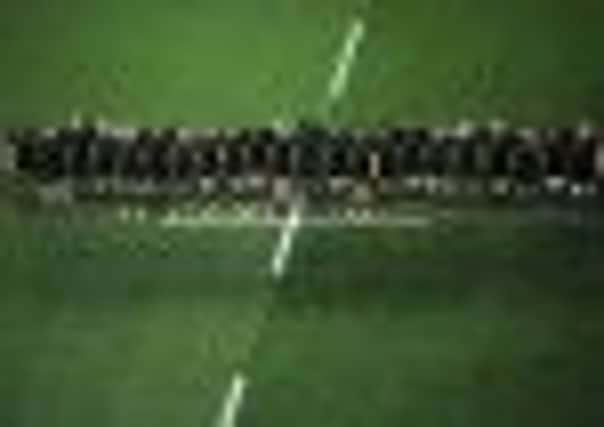Rugby players urged to donate their brains to help head-injury research


Robert Cantu, clinical professor of neurosurgery at the Boston University School of Medicine and co-director of a centre that studies the brains of deceased American footballers, suspects that some rugby players who suffer repeated concussions are at risk of a neurodegenerative condition called Chronic Traumatic Encephalopathy (CTE) or what used to be known as punch-drunk syndrome, a form of dementia.
Cantu’s team at the Boston “Brain Bank” has studied up to 100 brains of former NFL (National Football League) players who suffered repetitive head trauma during their careers and who in later life experienced the clinical symptoms of CTE – memory loss, emotional instability, erratic behaviour and depression.
Advertisement
Hide AdAdvertisement
Hide AdUp until last year, the NFL was in denial about the connection between the physicality of its sport and the physical deterioration of some of its stellar names, as well as many journeymen, but the governing body now fully accepts that it has a problem and has campaigned in an attempt to raise awareness. As a consequence, more than 500 living American athletes have agreed to donate their brain for research when they die. “I know about rugby and, absolutely, the game should be paying attention to our findings in Boston,” said Cantu.
“We haven’t had the opportunity to study the brains of any rugby players but I would assure you that, if we did, there would be some who, if they had played for long enough, would have CTE. There is a fair amount of head trauma in rugby.
“Rugby as a sport should encourage its athletes, especially athletes who have had issues later in life, to donate their brain upon death for study and be assessed to see if they had the clinical symptoms that go along with CTE. The diagnosis cannot be made 100 per cent unless you study somebody’s brain, but even right now you can have a very high index of suspicion.”
There is no research that establishes any kind of link between CTE and rugby, but what is certain is that in Ireland last year, two international rugby players were forced to retire from the game because of repeated concussion. Bernard Jackman and John Fogarty, both hookers and both Heineken Cup winners with Leinster at Murrayfield in 2009, have spoken about their own experiences of memory loss, headaches, dizziness and, in Fogarty’s case, emotional instability.
Jackman said he had been concussed more than 20 times in a relatively short period and, on occasion, couldn’t remember anything about large chunks of matches he’d actually played in. He said that he deliberately lied to his team doctor about his condition for fear of being stood down on medical grounds and then losing his place in the starting line-up.
“You just hid it all and got on with it,” he said. “I’d get a bang in a game and I’d be concussed, but I’d carry on as if on auto pilot. The next day I’d look at the DVD of the game and I wouldn’t remember doing the things I was doing. But you wouldn’t dream about admitting it to anybody. There is more awareness of concussion among players now but I’d still be worried that guys would keep things quiet when they should speak up.”
The IRB, through its Sydney-based chief medical officer, Martin Raftery, says that the prevention of head injury is the main priority in the game.
“Are we interested in what’s happening in Boston? Yes, we are,” said Raftery. “Are we watching it? Yes, we are.
Advertisement
Hide AdAdvertisement
Hide Ad“Is it relevant to our game at the moment? I’d question that, but we want to make the game as safe as possible. The findings in Boston relate to the NFL, who only one year ago outlawed the use of the head as an offensive weapon. That’s what caused a lot of the damage. Rugby has never allowed head-on-head collisions.
“But we’re taking concussion extremely seriously because the brain is quite a sensitive organ. We don’t want to take any risks at all. But there’s quite a considerable difference between what happens in the NFL and what happens in rugby. They’re not the same sport. The research is really in its infancy. We have to recognise a risk and manage a risk, but we must also be careful not to be swayed by emotion. There has never been a case of CTE in a rugby player. The prevention of head injuries is our number-one priority.”
In Edinburgh in March of next year, Jackman will speak at a session of the World Congress on Brain Injury alongside Dr Willie Stewart, consultant neuropathologist at Southern General Hospital in Glasgow. Stewart, a keen rugby fan, is a leading expert in the UK on CTE. Asked if he agreed with Cantu’s view that the only way of discovering whether there is a link between rugby and CTE was by analysing the brain of an ex-player who showed some of the symptoms, Stewart replied: “Yes, I’d agree with that. It’s very early days and it’s a very emotive subject. We’re talking about young men here and nobody really wants to think about it. We don’t really know enough about it but it’s a fascinating subject and demands more attention.”